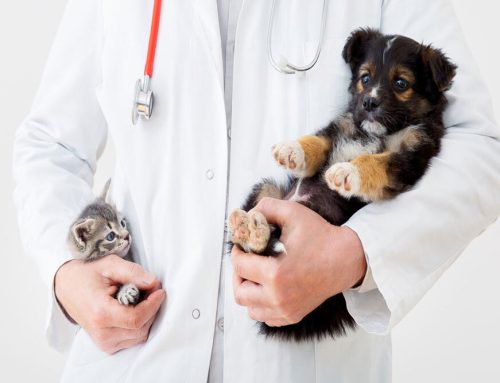Did you know that an estimated 1 in 4 dogs and 1 in 5 cats will develop cancer at some point in their lives? This statistic highlights how crucial early detection is for your pet’s health and well-being. At Providence Vet in Virginia Beach, Virginia, we understand the special bond you share with your pet and the importance of proactive cancer screening and care. With regular veterinary visits and an awareness of cancer symptoms, you can give your furry companion the best chance for a long and happy life.
Understanding Cancer in Pets
Cancer in pets occurs when abnormal cells grow uncontrollably, potentially affecting any organ or tissue. These cells can form localized tumors or spread throughout the body, interfering with normal bodily functions. While genetics play a significant role, external factors such as environment, diet, and age also contribute to cancer risk.
Common Types of Cancer in Pets
- Lymphoma: A cancer of the lymphatic system, common in dogs and cats.
- Mast Cell Tumors: Typically affecting the skin in dogs.
- Osteosarcoma: A bone cancer often seen in larger dog breeds.
- Hemangiosarcoma: A cancer of the blood vessels, frequently affecting the spleen or heart.
While some cancers progress rapidly, others may develop slowly, making regular veterinary exams essential for early detection.
Recognizing Cancer Symptoms in Pets
Cancer symptoms can vary widely depending on the type and location of the cancer. Here are some key warning signs to watch for:
- Lumps or Unusual Growths: Not all lumps are cancerous, but any new or changing bump should be evaluated by a veterinarian.
- Unexplained Weight Loss: Significant weight loss without changes in diet or activity can indicate serious underlying issues.
- Persistent Sores or Wounds: Sores that fail to heal may signal an underlying problem, including cancer.
- Changes in Appetite or Eating Habits: Difficulty chewing, swallowing, or sudden disinterest in food can point to oral or gastrointestinal cancers.
- Abnormal Bleeding or Discharge: Bleeding from the nose, mouth, or other areas warrants immediate veterinary attention.
- Behavioral Changes: Increased lethargy, irritability, or withdrawal from interaction can indicate discomfort or illness.
For more information on spotting symptoms, the American Veterinary Medical Association (AVMA) offers valuable resources.
Breeds Prone to Cancer
Certain breeds have a higher predisposition to developing specific cancers due to their genetic makeup. Awareness of these risks can help owners stay vigilant:
Dogs
- Golden Retrievers: Prone to lymphoma and hemangiosarcoma.
- Boxers: Higher risk of mast cell tumors.
- Bernese Mountain Dogs: Susceptible to histiocytic sarcoma.
- Rottweilers and Great Danes: Frequently diagnosed with osteosarcoma.
Cats
- Siamese Cats: Higher rates of lymphoma and mammary cancer.
- Light-Colored Cats: Increased risk of squamous cell carcinoma due to UV exposure.
- Oriental Breeds: Predisposed to oral cancers.
If your pet belongs to a high-risk breed, routine screenings and wellness exams are critical for early detection. Learn more about breed-specific concerns on our Family Ties: Common Breed-Related Health Conditions in Pets page.
The Role of Veterinary Care in Cancer Management
Regular veterinary visits are vital for identifying cancer in its early stages. At Providence Vet, we offer Advanced Care services equipped with diagnostic tools like biopsies, imaging, and blood tests to identify cancer and develop personalized treatment plans.
Our compassionate team works closely with pet families to ensure pets receive the best possible care, from diagnosis to recovery.
Treatment Options for Cancer in Pets
Treatment options depend on the type and stage of cancer, as well as your pet’s overall health. Common treatments include:
- Surgery: Often the first line of defense, surgery can remove tumors and prevent further spread.
- Chemotherapy: Administered to slow or halt cancer cell growth, tailored to each pet’s specific needs.
- Radiation Therapy: Focused energy targets and destroys cancer cells with minimal impact on surrounding tissues.
- Palliative Care: For pets in advanced stages, this focuses on managing pain and improving quality of life.
At Providence Vet, our goal is to extend your pet’s life while prioritizing comfort and well-being.
Preventing and Reducing Cancer Risks

Although not all cancers can be prevented, certain lifestyle adjustments and preventive measures can reduce your pet’s risk:
- Healthy Diet: A diet rich in nutrients and antioxidants boosts overall immunity.
- Weight Management: Obesity is linked to increased cancer risks, so maintaining a healthy weight is critical.
- Avoid Carcinogens: Limit exposure to tobacco smoke, lawn chemicals, and other toxins.
- Spaying/Neutering: Helps reduce the risk of reproductive cancers like mammary or testicular tumors.
- Regular Check-Ups: Routine wellness exams enable early detection of abnormalities.
Visit our Wellness and Prevention page for more tips on keeping your pet healthy.
Support for Pet Owners
Facing a cancer diagnosis in your pet can be overwhelming, but you don’t have to go through it alone. Resources like the Veterinary Cancer Society offer additional guidance and support for pet owners navigating this challenging journey.
Why Choose Providence Vet?
At Providence Vet, we are dedicated to offering the highest level of care for pets with cancer. From early detection to advanced treatments, our team is committed to giving your pet the best quality of life possible. With state-of-the-art technology and compassionate care, we’re here to help you through every step of this journey.
If you’re concerned about your pet’s health or need to schedule a check-up, don’t wait. Contact us today or schedule an appointment to ensure your pet receives the care they deserve.






Leave A Comment